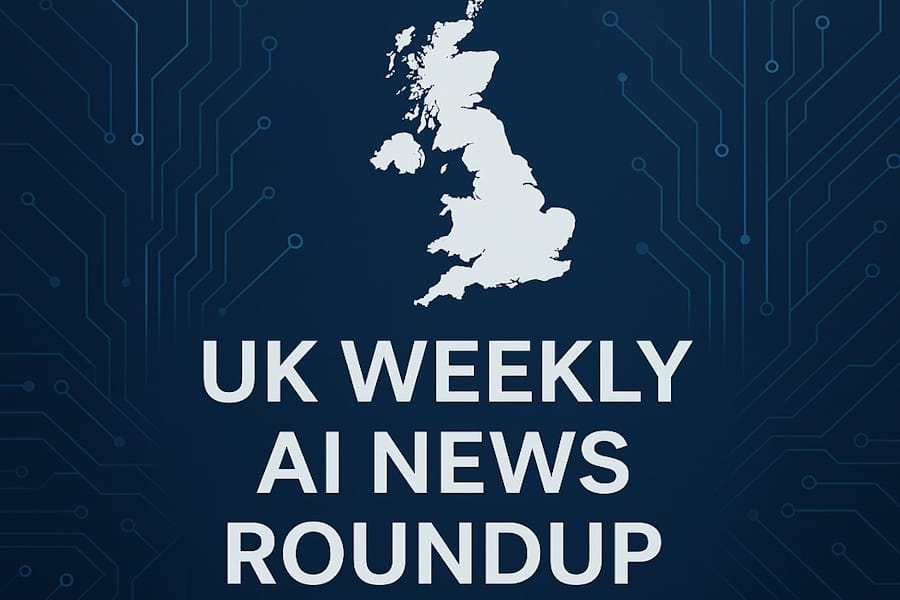High-Stakes AI Talent Wars Reshape IT Salary Market Amid Tech Layoffs

Publish Date: Last Updated: 7th July 2025
Author: nick smith- With the help of GROK3
In a striking paradox, the tech industry is witnessing a seismic shift in its job market. While layoffs ripple through major tech firms, a fierce battle for artificial intelligence (AI) and machine learning (ML) talent is driving unprecedented salary offers. This week, OpenAI CEO Sam Altman revealed that Meta, the parent company of Facebook, Instagram, and WhatsApp, has been aggressively courting OpenAI engineers with nine-figure compensation packages, some reportedly as high as $100 million in signing bonuses alone. These astronomical offers highlight the high-stakes competition for elite AI professionals and are reshaping the IT salary landscape in profound ways.
The AI Talent Arms Race
The competition for AI expertise has reached fever pitch, with industry giants like Meta, OpenAI, Google, and Anthropic vying for a limited pool of top-tier researchers and engineers. Altman, speaking on the "Uncapped" podcast hosted by his brother Jack, disclosed that Meta’s offers included not only $100 million signing bonuses but also annual compensation packages exceeding that figure. “It’s crazy,” Altman remarked, noting that, so far, none of OpenAI’s “best people” have accepted Meta’s lucrative deals, citing loyalty to OpenAI’s mission of achieving artificial general intelligence (AGI) and its potential to become a more valuable company.
Meta’s aggressive recruitment strategy is part of a broader push to bolster its AI capabilities, particularly through its new 50-person “Superintelligence” team, led by former Scale AI CEO Alexandr Wang. The company recently invested $14.3 billion for a 49% stake in Scale AI, a move that included hiring Wang and a select group of his team to spearhead Meta’s AI research. However, Meta’s efforts to poach talent from rivals like OpenAI and Google DeepMind have met with mixed success. While it successfully recruited researchers like Jack Rae from DeepMind and Johan Schalkwyk from Sesame AI, attempts to lure high-profile figures like OpenAI’s Noam Brown and Google’s Koray Kavukcuoglu have failed.
Other players in the AI race are equally aggressive. Google DeepMind has reportedly enforced noncompete clauses, paying researchers full salaries to prevent them from joining competitors, while OpenAI has offered retention bonuses exceeding $2 million and equity packages worth over $20 million to deter defections. Anthropic, a startup founded by ex-OpenAI researchers, boasts an 80% retention rate, drawing talent from rivals at a remarkable pace—engineers are eight times more likely to leave OpenAI for Anthropic than vice versa.
A Paradox of Layoffs and Lucrative Offers
The AI talent wars stand in stark contrast to broader tech industry trends, where layoffs have become commonplace. SignalFire’s 2025 State of Talent Report highlights a “sharp reset” in tech hiring, with entry-level roles vanishing and overall hiring slowing due to smaller funding rounds and shrinking teams. Meta itself has faced criticism for its “weedwacker” layoffs, which have eroded trust among potential AI hires. These layoffs, coupled with reputational challenges around data privacy and ethical concerns, have made it harder for Meta to attract talent despite its financial firepower.
Yet, for elite AI professionals, the market has never been hotter. Posts on X reflect the frenzy, with one user noting, “Meta offering $100 million (Rs 850 Crore) for Open AI engineers to switch companies,” while another quipped that the lowest nine-figure offer is “$100,000,000.” The World Economic Forum projects 97 million new AI-related roles by 2030, including 1 million AI/ML specialist positions by 2027, underscoring the long-term demand for such expertise.
Reshaping the IT Salary Market
The astronomical compensation packages for AI talent are sending shockwaves through the IT salary market. While the average software engineer at OpenAI earns $1.13 million annually, according to Levels.fyi, top researchers at elite AI labs can command salaries exceeding $10 million per year. Meta’s reported $2 million annual offers for AI researchers, even for those who ultimately left for competitors, set a new benchmark that other firms are now pressured to match.
This trend is inflating compensation expectations across the sector. Aravind Srinivas, CEO of Perplexity AI, noted that researchers often prioritize access to cutting-edge infrastructure, like Nvidia’s H100 GPUs, over salary alone, but the nine-figure offers are forcing companies to rethink their recruitment strategies. Smaller startups, lacking the resources of Big Tech, face being squeezed out, as one X post warned: “Expect comp packages across the sector to inflate, with smaller players squeezed.”
Moreover, the focus on financial incentives is shifting the industry’s approach to retention. OpenAI’s success in retaining talent despite Meta’s offers suggests that mission-driven cultures and innovative work environments can outweigh monetary lures. Altman emphasized that OpenAI’s “really special culture” and its pursuit of AGI keep employees loyal. Anthropic’s high retention rate similarly points to the value of autonomy and a shared vision.
The Future of AI Talent
The AI talent wars are a high-risk, high-reward gamble, as Forrester analyst Indranil Bandyopadhyay told the BBC. “A handful of elite researchers and engineers can provide a decisive competitive advantage,” he said, reflecting the industry’s belief that individual contributors can reshape the AI landscape. However, the sustainability of such lavish spending remains uncertain. Edward Keelan of Octopus Ventures warned that the “AI gold rush” is moving at a “breakneck pace,” with talent as its most contested resource.
As companies pour billions into AI infrastructure—OpenAI alone announced a $500 billion data center investment in January—the demand for skilled professionals will only intensify. Yet, the industry must balance financial incentives with cultural and ethical considerations to attract and retain the best minds. For now, the paradox of layoffs and nine-figure offers underscores a transformative moment in tech, where AI talent is both the scarcest commodity and the key to future dominance.
Latest AI News Articles
AI Questions and Answers section for High-Stakes AI Talent Wars Reshape IT Salary Market Amid Tech Layoffs
Welcome to a new feature where you can interact with our AI called Jeannie. You can ask her anything relating to this article. If this feature is available, you should see a small genie lamp above this text. Click on the lamp to start a chat or view the following questions that Jeannie has answered relating to High-Stakes AI Talent Wars Reshape IT Salary Market Amid Tech Layoffs.
Be the first to ask our Jeannie AI a question about this article
Look for the gold latern at the bottom right of your screen and click on it to enable Jeannie AI Chat.





